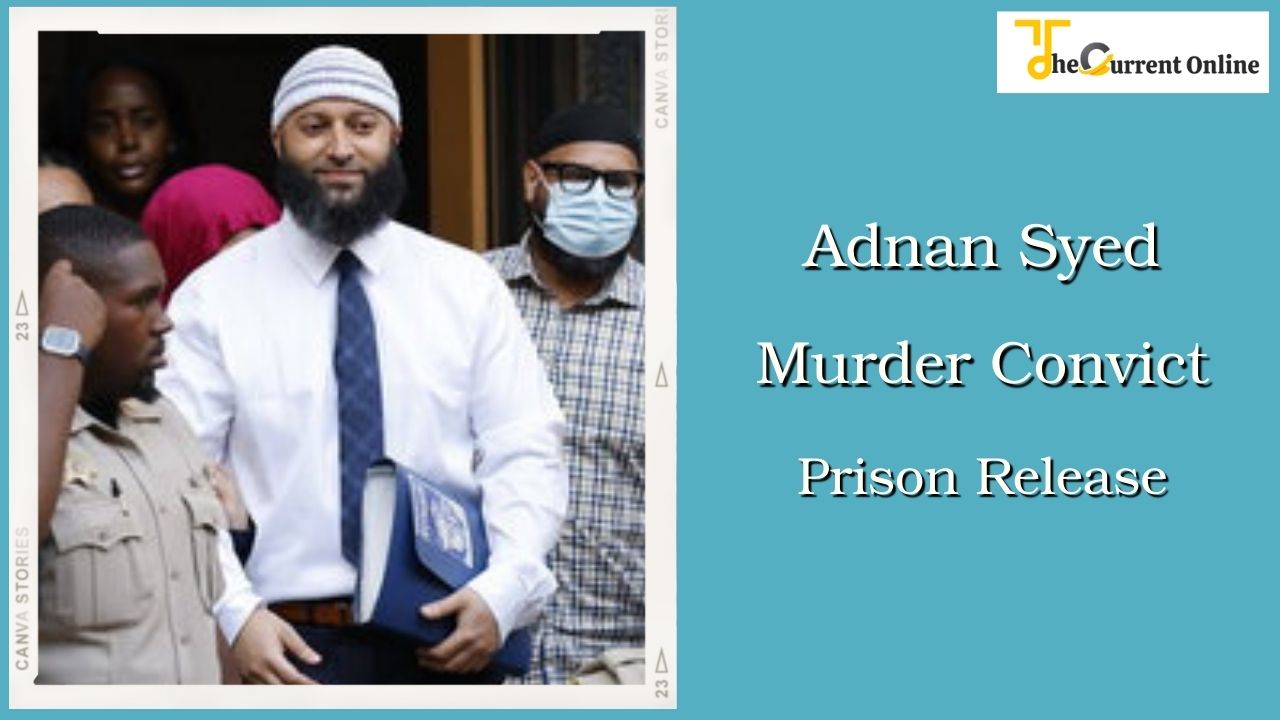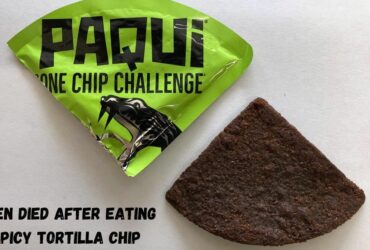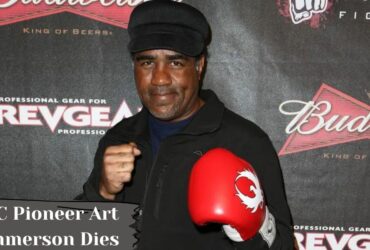After 23 years in prison, Adnan Syed, whose case gave rise to the popular podcast “Serial,” was released from his chains on Monday.
Judge Melissa Phinn of the Baltimore Circuit Court reversed Syed’s murder conviction in the 1999 killing of Hae Min Lee after prosecutors questioned the validity of the evidence used against him at trial and the identification of alternate possibilities.
Syed was placed on home detention with a GPS monitor while the Baltimore State’s Attorney Marilyn Mosby’s office decided whether to drop the charges against him or retry him for murder in the death of his ex-girlfriend, according to Phinn, who justified her decision as being in the “interest of justice and fairness.” The prosecution has 30 days to decide.
Syed, wearing a white shirt and a black tie, grinned as he made his way down the courthouse stairs to the loud applause of his friends, family, and supporters. He avoided speaking to the media as he left the court, but his lawyer, Erica Suter, recalled her client telling her after Phinn’s decision that “he couldn’t believe it’s real.”
Authorities knew of at least one alternate suspect before Suter’s trial, according to the prosecution, but kept that information from his defense, violating a legal principle known as the Brady rule. This was revealed through a yearlong investigation conducted alongside Suter, the prosecution claimed.
Although Mosby would not commit to dropping the case on Monday, she did acknowledge that a significant portion of the evidence used in the initial trial was no longer relevant. Whatever the conclusion, Mosby claimed that it demonstrated her office’s dedication to a fair justice system.
Justice is always worth the cost incurred in pursuing it, as I stated four months after the death of Freddie Gray and again four months before my tenure is up.
“A judge on Monday vacated the conviction of Adnan Syed, whose murder case drew wide attention after it was featured on the true-crime podcast ‘Serial.’” https://t.co/JOvufYL7H8
— Sahil Kapur (@sahilkapur) September 19, 2022
However, following Phinn’s decision, Maryland Attorney General Brian Frosh, whose office represented the state in Syed’s many appeals, issued a statement claiming that there was no Brady breach and that Mosby’s office’s motion had “other severe flaws.” Frosh’s comments lacked specifics.
Frosh stated, “With regard to these alleged violations, neither State’s Attorney Mosby nor anybody from her office bothered to check with either the Assistant State’s Attorney who prosecuted the case or with anyone in my office. The defense was given multiple opportunities to view the file in this instance.
Lee, 18, died after being strangled and was interred in a secret tomb in Leakin Park. Authorities at the time stated that they believed Syed, her ex-boyfriend, and had a scuffle in the car before he killed her. The official explanation at the time was that the well-liked Woodlawn High School honors student couldn’t take it when Lee broke up with him. He was detained when he was 17 and has been there ever since.
The 41-year-old Syed has consistently maintained his innocence. Suter exclaimed in court that her client was innocent and criticized the prosecution for hiding evidence that would have demonstrated this for years.
“Perhaps Adnan would not have missed his high school graduation, his ambitions to pursue a career in medicine, or 23 years of birthdays, holidays, family get-togethers, community activities, and ordinary moments of joy,” Suter said following the trial.
When Phinn delivered the verdict in court, Syed remained calm while his loved ones cried, hugged, and gasped. When the judge decided to adjourn the court, the public gallery exploded.
The meeting had previously taken on a tense air after a lawyer for Lee’s relatives requested a postponement on the grounds that his clients, who reside on the West Coast, hadn’t been given adequate notice to attend the hearing. Phinn rejected the motion but stopped the hearing for 30 minutes to allow Lee’s brother to find a quiet location and connect to the hearing via video.
Young Lee said he felt misled and blindsided by the prosecution’s choice to attempt to overturn Syed’s conviction when he was given the chance to speak in front of the attorneys. As he addressed the judge, he began to cry.
“This podcast is not for me. Young Lee informed Phinn, “This is real life.
Although Lee expressed respect for the criminal justice system, he also spoke of the ongoing sorrow of his family members. He declared that while he is not opposed to further research, Syed’s conviction should stand.
Every day, just when I think it’s over, it comes back, he continued. “I’m dying from it,”
In court, Becky Feldman, an assistant state’s attorney, stated that the prosecution’s choice of how to handle Syed’s case depends on an ongoing investigation centered on the potential suspects. Feldman pledged that her office will devote all of its resources to the investigation, which Baltimore police have revived in the wake of Lee’s murder.
According to Feldman, the head of the office’s Sentencing Review Unit, “We need to make sure we hold the right individual accountable.”
In 1999, Syed’s initial trial resulted in a mistrial. He was found guilty of murder by a jury in 2000. At sentencing, the judge imposed a sentence of life in prison plus 30 years.
Prosecutors had fought to defend Syed’s conviction in the past, but they now claim that Syed might not be Lee’s murderer. According to the prosecution’s plea to reverse Lee’s conviction, two other individuals who may have killed Lee have been known to them since 1999.
https://twitter.com/ZellnerLaw/status/1572002451837812738?s=20&t=2wS2cJRf68ijkjMArjNZeA
She had been threatened by one of the accused, who claimed “he would make her disappear. He would murder her, the prosecution said.
The alternative suspects, according to the prosecution, were not disclosed to Syed’s defense prior to trial, thus his lawyers were unable to use that material to prove his innocence to the jury.
One of the suspects was labeled a serial rapist by the prosecution, who claimed that the suspect had been found guilty of a string of sex assaults following Syed’s conviction. According to the state’s motion, police found Lee’s automobile close to one of the other suspects’ homes.
Prosecutors claim that cellphone location data, which has now been proven to be faulty, played a part in Syed’s conviction. Additionally, they emphasized how Jay Wilds, his co-defendant, contradicted himself in his deposition.
Suter said in court that “Mr. Syed’s conviction was founded on a defective investigation.” This was accurate in 1999 when he was just 17 years old. It still holds true today.
Prosecutors stated that despite the new information, they are not ready to exonerate Syed.
After “Serial,” a podcast that helped establish the true crime subgenre and was aired in 2014, raised further concerns about Lee’s passing, Syed’s conviction came to the attention of the world. Since then, books, podcasts, and television programs have been produced about his legal experience, which has resulted in new court documents being filed in his case.
All of his appeals were denied by the courts, with the Supreme Court declining to take his case in 2019.
Up until this spring, nothing much happened.
Suter, a public defender and the head of the Innocence Project clinic at the University of Baltimore School of Law, had been secretly coordinating with Mosby’s office in the hope of shortening Syed’s sentence in light of a recent state law that allows those convicted of crimes before the age of 18 to request the court reduce their sentence.
Prosecutors decided to ask for new DNA testing for things gathered as proof of Lee’s murder as they investigated the case.
The tests were ordered by Phinn in March, but according to court records, the results are still ambiguous.
A couple of the items are still being tested, and Mosby stated following the hearing that the office was awaiting the results before determining whether to drop Syed’s charges.
FAQs
Is the serial character Adnan still incarcerated?
Adnan Syed, whose murder case captured the nation’s attention after it was featured on the true-crime podcast “Serial,” was released from prison on Monday after serving 23 years. The judge who overturned his conviction found flaws in the way prosecutors had long ago provided evidence to defense lawyers.
Who is Adnan Syed?
After being found guilty of murdering his high school classmate and former girlfriend Hae Min Lee, whose body was discovered buried in a Baltimore park in 1999, Mr. Syed, 41, was given a life sentence.
Adnan Syed’s age at the time of his conviction.
Adnan Syed, who was 18 years old when he was convicted of killing his ex-girlfriend Hae Min Lee, had his conviction overturned by a Baltimore judge. Adnan was given a life term in jail in 2000. In 1999, Lee’s body was discovered strangled in Baltimore’s Leakin Park. Syed, according to judge Melissa Phinn, will be released on house detention.
How was Adnan able to get freed?
Adnan Syed was freed from prison after the court overturned his murder conviction in the “Serial” podcast. Adnan Syed, the subject of the popular podcast “Serial,” who had served more than 23 years in jail for the murder of his ex-girlfriend, had his murder conviction overturned by a Baltimore judge on Monday.




